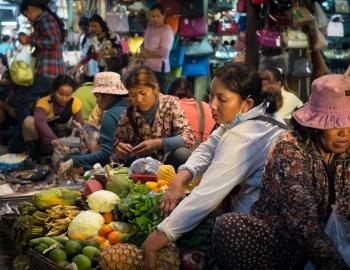INSIDE STORY: Pioneering renewable energy options: Thailand takes up the challenge
INSIDE STORY: Pioneering renewable energy options: Thailand takes up the challenge
Thailand’s support of policies for renewable energy (RE) in the power sector have allowed individual small projects to add up to something substantial, attracting more investment and leading to faster growth in the sector than in most other Asian nations. Thai energy policy is complex, and the development of RE has not been without controversy. While this brief provides some elements of the context necessary to understand renewable electricity promotion policies, it cannot cover all aspects of Thai energy policy. Instead it focuses on identifying factors that can explain the relative success of Thai policies and highlights some lessons for future development.
Key messages
- Thailand was among the first countries in Asia to introduce incentive policies for the generation of electricity from renewable energy (RE) sources, leading to rapid growth, particularly in solar power.
- Programmes for small and very small power producers created predictable conditions for RE investors to sell electricity to the grid. The ‘Adder’, a feed-in-premium, guarantees higher rates for RE, making the investments profitable. Thailand also regularly updates technical regulations, provides preferential financing, and invests in research and training.
- Civil society involvement strengthened and improved RE policies. In Thailand, outside expertise and links to international networks brought by civil society experts were crucial for the design and approval of the incentive measures.
The Thai government is now adapting its policies to take account of recent technological progress and market growth. It is considering a sophisticated feed-in tariff to better control costs, while continuing to offer an enabling environment for RE investments.


